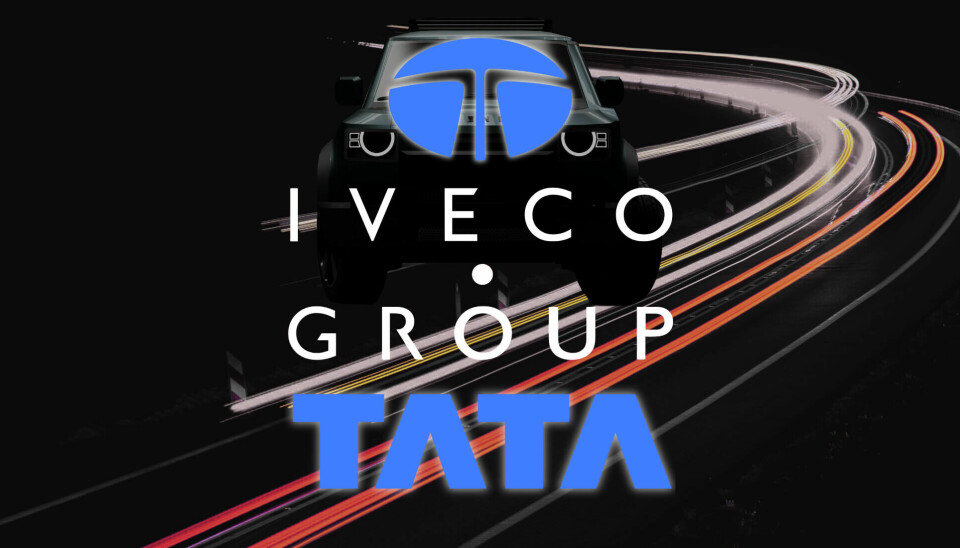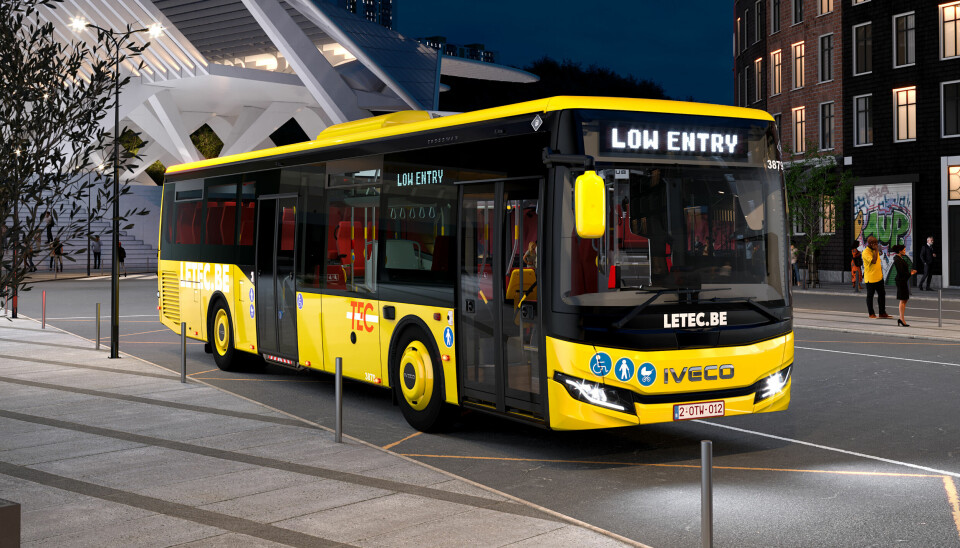Global M&A Strategy
Resilience redrawn? Tata-Iveco charts a new $4.3bn global industrial map

Tata Motors will acquire Iveco Group’s commercial vehicle business for €3.8 billion, excluding its defence arm. The move aims to build a diversified global champion with combined revenues of €22 billion and a shared focus on sustainable mobility.
The global realignment of industrial capabilities continues. Tata Motors has launched a €3.8 billion ($4.3 billion) move to acquire Italy’s Iveco Group, excluding its defence division, in an effort to form a diversified global powerhouse in commercial vehicles. The deal has been touted as “Bigger than [the] Jaguar Land Rover acquisition".
This move may not simply be a typical cost-cutting consolidation but a rare instance of complementary ambition, as the two groups pledge to preserve industrial footprints while uniting scale, technology and geography.
“This is a logical next step following the demerger of the Tata Motors Commercial Vehicle business.”
Natarajan Chandrasekaran, Chairman, Tata Motors
The offer, unanimously supported by Iveco’s board and backed by its largest shareholder, Exor, values the group's commercial operations at $16.09 per share. Crucially, it excludes the defence arm, which will either be sold by 31 March 2026 or spun off if a buyer cannot be secured. Only after that separation will the acquisition proceed, with regulatory clearance and financing already secured. Completion is expected by the second quarter of 2026.
“The combined group's complementary businesses and greater reach will enhance our ability to invest boldly,” said Natarajan Chandrasekaran, Chairman of Tata Motors. “This is a logical next step following the demerger of the Tata Motors Commercial Vehicle business.”
Complementary geographies, asymmetric advantages
The move is less about rationalisation than strategic augmentation. There is no overlap in geography or product lines: Tata’s commercial vehicle business dominates the Indian subcontinent and emerging markets, while Iveco brings strength in Europe and the Americas. Together, they will account for approximately 540,000 annual unit sales and generate $25.1 billion in revenue, with around 50% in Europe, 35% in India and 15% in the Americas.

In combining, the companies intend to broaden their reach in Africa and Southeast Asia, leveraging Tata’s footprint and Iveco’s industrial capability. The offeror, TML CV Holdings, will support Iveco’s strategy and brand identity, keeping its headquarters in Turin and its board largely intact. “We are proud to announce this strategically significant combination, which brings together two businesses with a shared vision for sustainable mobility,” said Suzanne Heywood, Chair of Iveco Group.
Rather than impose a single management culture, the partners have agreed to preserve contractual CAPEX, avoid plant closures and maintain employee rights and benefits for at least two years. The promise is not merely one of market share, but of industrial continuity.
Industrial logic in a fractured global economy
The acquisition reflects a broader shift in industrial strategy among global OEMs. As tensions between regulatory blocs rise and supply chains localise, automotive groups are searching for resilience. The fusion of Tata and Iveco speaks to the search for geographic insulation and product diversity. Tata adds industrial capacity in Europe while Iveco secures a stable foothold in Asia and India. Neither party needs to tear down what the other has built.
This partnership not only enhances our ability to serve diverse mobility needs across markets, but also reinforces our commitment to delivering sustainable transport solutions that are aligned with global megatrends
Girish Wagh, Executive Director, Tata Motors
“By joining forces with Tata Motors, we are unlocking new potential to further enhance our industrial capabilities, accelerate innovation in zero-emission transport, and expand our reach in key global markets,” said Olof Persson, CEO of Iveco Group. “This combination will allow us to better serve our customers with a broader, more advanced product portfolio and deliver long-term value to all stakeholders.”
Girish Wagh, Executive Director of Tata Motors, echoed the strategic breadth of the deal: “This combination is a strategic leap forward in our ambition to build a future-ready commercial vehicle ecosystem… We are shaping a resilient and agile enterprise, equipped to lead in times of transformative change.”
An automotive production future built on mobility and modularity
Central to the transaction is a belief in modular mobility platforms, alternative drivetrains and the rationalisation of capital expenditure across a broader asset base. The combination offers greater operating leverage, potentially smoothing the cyclical volatility that haunts the commercial vehicle sector. More than that, it strengthens Tata’s access to FPT Industrial, Iveco’s powertrain arm, as both companies double down on zero-emission innovation.
Tata's recent sales performance shows an interesting trend
| Category | Percentage Change (%) | Units (July 2025) YoY | Units (July 2024) | Change/Direction |
| Total Sales | -4 | 69131 | 71996 | Decrease |
| Domestic Dispatches | -12 | 39521 | 44725 | Decrease |
| Passenger Vehicle (PV) | -11 | 40175 | 44954 | Decrease |
| Electric Vehicle (EV) | +42 | 7124 | 5031 | Increase |
| Commercial Vehicle (CV) | +7 | 28956 | 27042 | Increase |
Tata has noticed that overall demand is down, while Commercial and Electric Vehicles are up. Iveco dominates in Europe's light ight e-commercial vehicle segment, holding a 40% market share, followed by Ford which holds 23%.
The carmakers also expect to benefit from overlapping supplier ecosystems, allowing for broader volume purchasing, common architecture strategies, and localisation where regulation demands it. In terms of supply chains and production scale, the alignment could yield longer-term manufacturing advantages in terms of energy, logistics and digital integration.
None of this is guaranteed. The offer hinges on a clean separation of Iveco’s defence division, currently valued at $1.94 billion. Shareholders are expected to receive an extraordinary dividend of $6.3–$6.8 per share in relation to the sale, implying a total effective value of up to $22.9 per share. That translates into a 41% premium over the pre-rumour trading average, a figure underpinned by a fairness opinion from Goldman Sachs.
Production governance by independence, not interference
Both parties have carefully constructed a governance framework that avoids culture clash or operational confusion. Iveco’s board will retain decision-making control, and two independent directors will monitor compliance with a series of non-financial covenants, ranging from employee protections to capital expenditure commitments. Tata has pledged not to conduct restructurings or layoffs at Iveco as a result of the transaction.
“This partnership not only enhances our ability to serve diverse mobility needs across markets, but also reinforces our commitment to delivering sustainable transport solutions that are aligned with global megatrends,” said Girish Wagh.
Exor, the Agnelli family’s investment arm, which holds 27% of Iveco shares and 43% of its voting rights, has provided an irrevocable undertaking to support the deal and tender its shares. The offer aims to achieve full ownership of Iveco and will result in its delisting from Euronext Milan.
No disruption, just transformation
In contrast to the aggressive synergies sought by past cross-border automotive mergers, the Tata–Iveco deal is deemed to be measured and consensual. Instead of dismantling brands or consolidating platforms, the transaction seeks to bring parallel strengths under a shared strategic roof. Iveco’s engineers and factories in Europe, Tata’s distribution and innovation in Asia, and a shared belief in the value of industrial sovereignty, place the vehicle producers on common ground.





